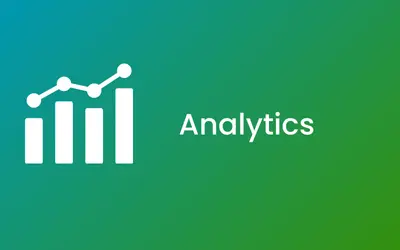Munich, the capital city of Bavaria, Germany, is known for its beautiful architecture, scenic landscapes, and vibrant culture. However, it is also emerging as a hub for technology and innovation, which has led to the growth of analytics courses in the city. An analytics course is a program designed to teach students how to extract insights from data using various tools and techniques. The course typically revolves around the fields of statistics, mathematics, and computer science in order to solve business problems. The city of Munich offers a variety of analytics courses to meet the growing demand for data professionals. Many of the courses are offered by local universities such as Ludwig Maximilian University (LMU), Technical University of Munich (TUM), and Munich Business School. These courses range from basic introductory courses to more advanced programs that cater to professionals seeking to enhance their skills. One of the most popular analytics courses in Munich is the Master of Science in Data Science offered by LMU. This two-year program is designed to provide students with a deep understanding of statistical methods, machine learning, and data processing. The course also emphasizes solving real-world problems by working on projects with local businesses in the city. TUM also offers a Master of Science in Data Engineering and Analytics, which focuses on the technical skills required for data professionals. Students learn about databases, programming languages, and data warehousing in addition to statistical methods and machine learning. For those seeking a more flexible option, Munich Business School offers an Executive Diploma in Business Analytics. This program is designed for working professionals and can be completed in just six months. Students learn about data visualization, predictive analytics, and data mining through a combination of online coursework and on-campus sessions. In addition to traditional university programs, there are also analytics courses offered by private institutions such as International School of Management (ISM). ISM offers a full-time Master’s program in Data Management and Business Analytics, which is designed to equip students with skills in data visualization, database management, and project management. Munich’s thriving business environment provides an excellent platform for students to apply their skills in real-world scenarios and gain practical experience. The city is home to several multinational corporations such as BMW, Siemens, and Allianz, that require skilled data professionals to analyze their large datasets. Furthermore, Munich has a growing start-up ecosystem, which has created several opportunities for students to work with emerging businesses and gain valuable experience. There are also networking events and conferences that provide students with the opportunity to connect with industry professionals and experts. In conclusion, Munich is an excellent destination for those seeking to pursue an analytics course. With a range of programs offered by top universities and private institutions, students have the flexibility to choose a program that suits their needs. The city's growing business environment provides ample opportunities for practical learning and networking, making it an ideal place for aspiring data professionals.

₹60,000


Watch how students, freshers, and professionals transformed their careers with Skillfloor's Analytics Courses Reviews
Hurry Up!
Limited seats call us now for amazing discounts on Analytics Courses course



Skillfloor is a Government-Recognized Skill Development Institute under Startup India (DPIIT), offering career-focused certification programs in Analytics, Artificial Intelligence (AI), Data Science, Digital Marketing, SEO, and related domains. As one of India's largest training institutes, our courses emphasize hands-on projects, expert mentorship, and skills aligned with real hiring needs. With flexible learning options - online, offline, and hybrid, plus 100% scholarships for selective students, we make quality, job-ready education accessible.
Explore the program that aligns with your goals and take the next step with Skillfloor.



- Overview of data analysis and its importance in business
- Types of analytics: Descriptive, Predictive, Prescriptive
- Role of data in decision-making processes
- Introduction to common tools: Tableau, PowerBI, Excel
- Ethical considerations in data collection and analysis
- Data sources: Primary and secondary data
- Data collection methods (surveys, web scraping, databases)
- Data cleaning techniques (handling missing values, outliers)
- Data transformation and feature engineering
- Data storage concepts (structured vs. unstructured data)
- Descriptive statistics: Mean, median, mode
- Data visualization basics (histograms, scatter plots)
- Identifying data patterns and trends
- Outlier detection and handling methods
- Correlation and causation analysis
- Inferential statistics and probability theory
- Hypothesis testing (t-tests, chi-square tests, ANOVA)
- Measures of central tendency and variability
- Confidence intervals and margin of error
- Regression analysis: Linear and logistic regression
- Principles of effective data visualization
- Types of charts and their uses (bar, line, pie, heatmaps)
- Designing dashboards for different audiences
- Interactive visualization techniques
- Data storytelling for impactful presentations
- Time series analysis and forecasting methods
- Clustering and segmentation analysis
- Decision trees and classification techniques
- Introduction to machine learning in business analytics
- Model evaluation and selection
- Basics of SQL for data manipulation
- Creating databases and relationships
- Aggregating data with SQL (GROUP BY, JOIN)
- Data modeling for business intelligence (star and snowflake schemas)
- Case study: Building a business model with SQL
- Connecting and preparing data in Tableau
- Creating basic visualizations (charts, maps)
- Advanced Tableau functions (LOD calculations, table calculations)
- Building interactive dashboards and stories
- Publishing and sharing visualizations on Tableau Server/Online
- Introduction to PowerBI workspace and components
- Data import and transformation with Power Query
- Data modeling and relationships in PowerBI
- Creating and customizing visualizations
- Publishing and collaborating on PowerBI Service
- Selecting a real-world dataset for analysis
- Defining business questions and objectives
- Conducting data analysis and visualization
- Presenting findings in a comprehensive dashboard
- Peer review and feedback on project